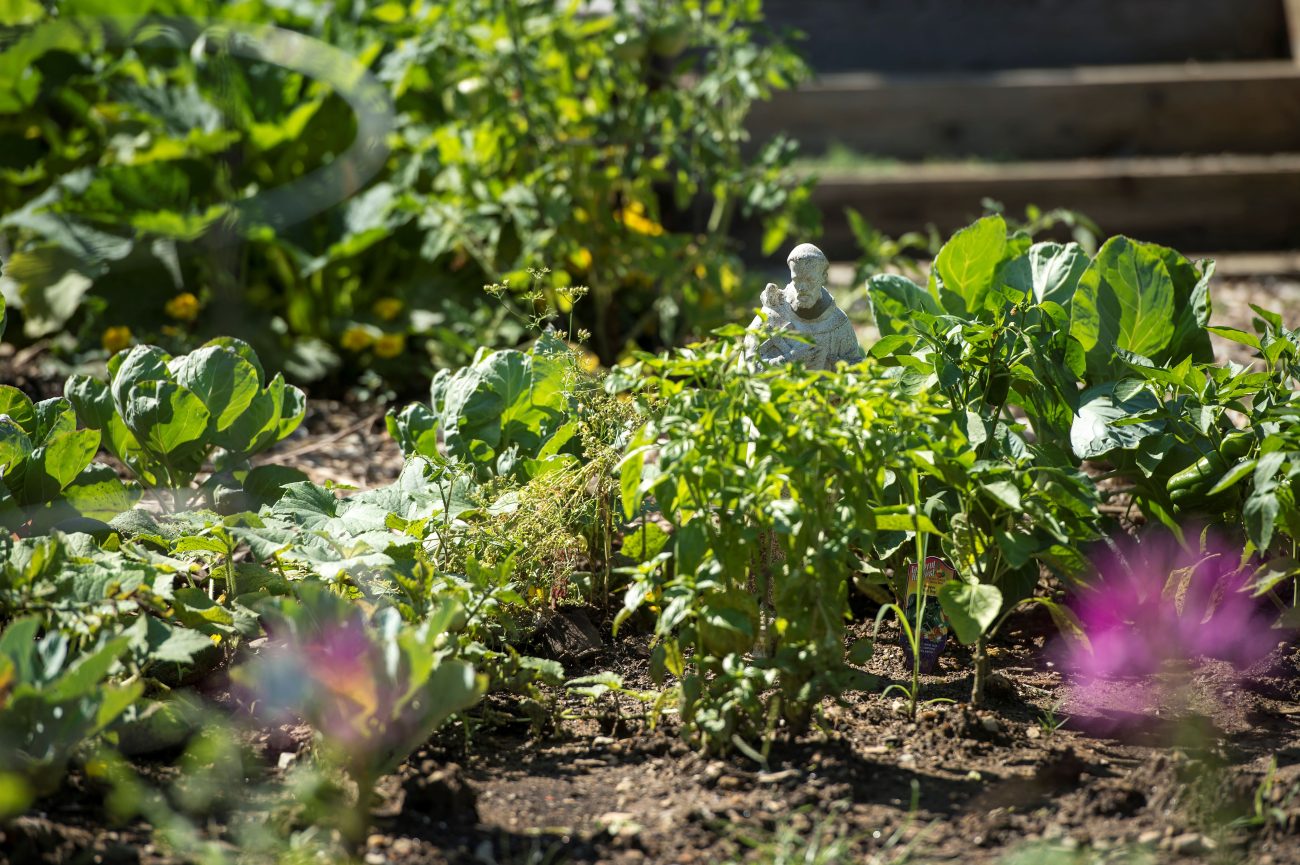In early July, a letter written by Cheryl A. McConnell, president of St. Joseph’s University in Philadelphia, announced the university’s commitment to a seven-year sustainability planning process in order to become designated by the Vatican as a Laudato Si’ University.
The designation is inspired by Pope Francis’ 2015 encyclical Laudato Si, “On Care for Our Common Home,” and calls for universities to evaluate current environmental and sustainability programs, then improve and develop further initiatives to address seven goals outlined by the pope.
“It’s the first certification based in Catholic Social Teaching,” said Clint J. Springer, associate professor and director of the Institute for Environmental Stewardship and director of the Barnes Arboretum at St. Joseph’s. His research has studied the impacts of climate change on plant development and physiology.
St. Joseph’s has made many strides in recent years with sustainability projects, including campus Earth Day celebrations, building a fully geothermal dormitory that houses more than 500 students, installing water bottle filling stations, integrating environmental topics into the curriculum, and promoting ecological spirituality through retreats and prayerful walks through the Barnes Arboretum.
By committing to the seven-year Laudato Si’ journey, “we’re taking this existing set of activities and turning them into an inclusive planning process with thoughtful, measurable outcomes toward the seven goals,” said McConnell, who became the president of the Jesuit-founded university in March 2023.
“With Dr. McConnell’s leadership, we’ve been able to make a full commitment as an institution. It’ll allow us to dig in deeper,” Springer said.
The seven-year process begins with forming a steering committee to be comprised of faculty, staff, and both undergraduate and graduate students. The committee will create and implement an action plan focused on the operations of the university.
It will also measure and report on progress to gain insights into the university’s environmental impact and ecologic footprint.
The action plan will address the seven goals outlined by Pope Francis: response to the cry of the earth; response to the cry of the poor; ecological economics; sustainable lifestyles; ecological education; ecological spirituality; and a community resilience and empowerment
These same principles are rooted in the Universal Apostolic Preferences, which guide the life and work of the Jesuit order. These include walking with the poor and excluded, collaborating in the care of our common home, and accompanying young people in the creation of a hope-filled future.
“We’re a Catholic Jesuit university,” said McConnell. “Care of the common home, the excluded, and environmental justice is right in the area where we can make an impact.”
Reflecting on the 2015 encyclical that inspired this certification, Springer said Laudato Si’ “was a big deal to a billion Catholics worldwide.” He was impressed by “the theological side of it” that reversed “the world view of man’s domination over nature. These things are here for us, but not for us to destroy,” he said.
Springer said that students are generally excited for this initiative, and “there’s a core group of students who have been looking for this type of large institutional commitment for quite a while.”
“We have just unleashed an infinite number of opportunities for students to get involved, and to practice skills that they’ll take into their lives as citizens, both personal and professional,” he said.
At the end of the seven-year planning process – in 2031 – the university will submit a summary of work to the Vatican, and then the determination will be made if the university’s plan is met and achieves designation as a Laudato Si university.
However, “achievement of the plan isn’t the finish line,” says Dr. McConnell. “It’s a destination on a very long journey to be responsible stewards of our Earth.”
For more information on Laudato Si’ Universities, see the website: https://laudatosiactionplatform.org/
PREVIOUS: Philly’s Biggest Baby Shower Returns for Second Year of Giving, Encouraging Community
NEXT: Seminarians Move in at New St. Charles Seminary Campus



Share this story